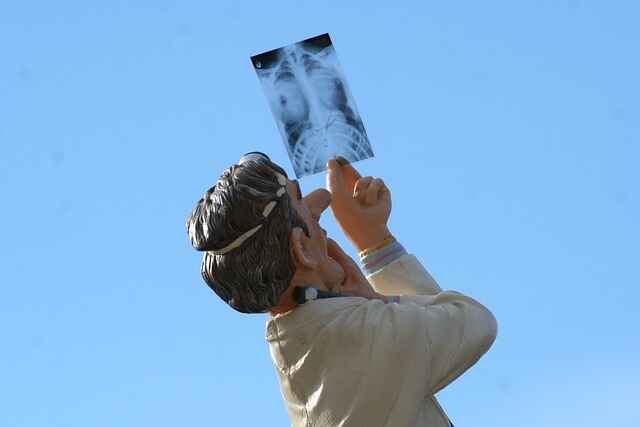Bladder cancers are mostly diagnosed at an early stage when the cancer is highly treatable. But even after successful treatment at an early-stage bladder cancers can return. Due to this risk factor, people with bladder cancer usually need follow-up tests for years after completion of the treatment for any sign of recurring cancerous cells. (Source & Reference)
About Bladder Cancer
Cancer of the bladder occurs when cells that build the urinary bladder start to grow abnormally. As more cancerous cells develop, they can eventually turn into a tumor, spreading all over the body over time.
It most often begins in the cells (urothelial cells) lining your bladder. Urothelial cancer can also happen in the kidneys and ureters, but it’s much more common in the bladder. (Source & Reference)
Causes of Bladder Cancer
Researchers don’t have the precise answer to what causes most bladder cancers. They have discovered some risk factors and trying to understand how they are causing bladder cells to become cancerous. Any transformation in the DNA of the cells can alter the instructions transmitted from the DNA to the cells; this condition would cause the bladder cells to grow out of control, causing cancer of the bladder. Gene mutation also happens due to changes in DNA, causing abnormal cells to grow excessively. Other factors also play roles in causing bladder cancer, like smoking and exposure to toxic chemicals. (Source & Reference)
Also Read: Prostate Cancer: Symptoms, Causes, Risk Factors, Diagnosis, Prevention, Facts
Risk Factors
- Increasing age. This Cancer risk increases as you grow older. Though it can occur in any age group, most people diagnosed with bladder cancer are older than 55.
- Smoking. Smoking cigarettes, cigars, or pipes can increase the risk of bladder cancer by causing chemicals to accumulate in the urine.
- Exposure to certain chemicals. Your kidneys filter harmful chemicals from your bloodstream and move them into your bladder.
- Chronic bladder inflammation. Chronic or repeated urinary infections or inflammations (cystitis), such as long-term use of a urinary catheter, may increase the risk of squamous cell bladder cancer.
- Previous cancer treatment. People who have had radiation treatments in the pelvis for previous cancer have a higher risk of developing bladder cancer.
- Personal or family history of cancer. If you’ve had bladder cancer in the past, you’re more likely to get it again. If one of your a parent, sibling, or child has a history of bladder cancer, you may have an increased risk of the disease.
- Arsenic in drinking water
- Not drinking enough fluids

Symptoms
This cancer has several signs and symptoms; if you are experiencing any one or multiple following symptoms, Kindly check with your medical specialist immediately:
- If you are experiencing a need for frequent urination and blood in the urine, you urgently need to see a doctor. As these are one of the significant symptoms of this cancer.
- Any difficulty or pain during urination is also a sign of cancer of the bladder.
- If you have been suffering from prolonged back pain, this could also be a sign of this cancer. (Source & Reference)
Diagnosis
If you are experiencing any or all the symptoms mentioned above, your general physician will first refer you to a specialist. Your medical specialist will perform a physical exam and check your medical history. After that, a thorough diagnosis will be conducted to determine any cancerous growth in your bladder. This diagnosis will include the below-mentioned tests-
- Urinalysis: This test checks any trace of blood in the urine.
- Urine cytology: In this test, a small urine sample is viewed under a microscope to trace any cancerous cell.
- Cystoscopy: This process is done by using a scope to examine inside your bladder. A urologist will use this scope lens to see any trace of abnormal cells inside your bladder.
- Biopsy: A small sample of cells from the bladder will be collected to check for any trace of cancer, and if any are found, the cancer grade could also be determined through this process.
Imaging tests to see a detailed picture of the bladder to detect cancerous cells or other tumors–
- Intravenous pyelogram (IVP)
- Retrograde pyelogram
- Computed tomography (CT) scan
- Magnetic resonance imaging (MRI) scan
- Ultrasound
- Chest x-ray
- Bone scan

Prevention
- Avoid or stop smoking to prevent this cancer, as smoking is a significant cause of cancer of bladder.
- Drink plenty of water; lack of fluid in the bladder can cause abnormal cell growth inside the bladder.
- A healthy diet can help you to avoid the possibility of this cancer. Eat various fruits, vegetables, and whole grains. Fruits and vegetables contain many nutrients that help you maintain a healthy diet.
- Limit exposure to certain toxic chemicals in the workplace, as inhaling poisonous chemicals might cause cancer of the bladder. (Source & Reference)
Facts
- According to some prominent studies, there will be an 80.3% increase in the number of this cancer cases all over the world by the year 2040.
- The number of new bladder cancers and deaths related to bladder cancer have been dropping slowly in women in recent years.
- Among men, cases have decreased slowly, but deaths due to this cancer have been stable. (Source & Reference)
Also Read: Lung Cancer: Symptoms, Causes, Risk Factors, Diagnosis, Prevention, Facts





